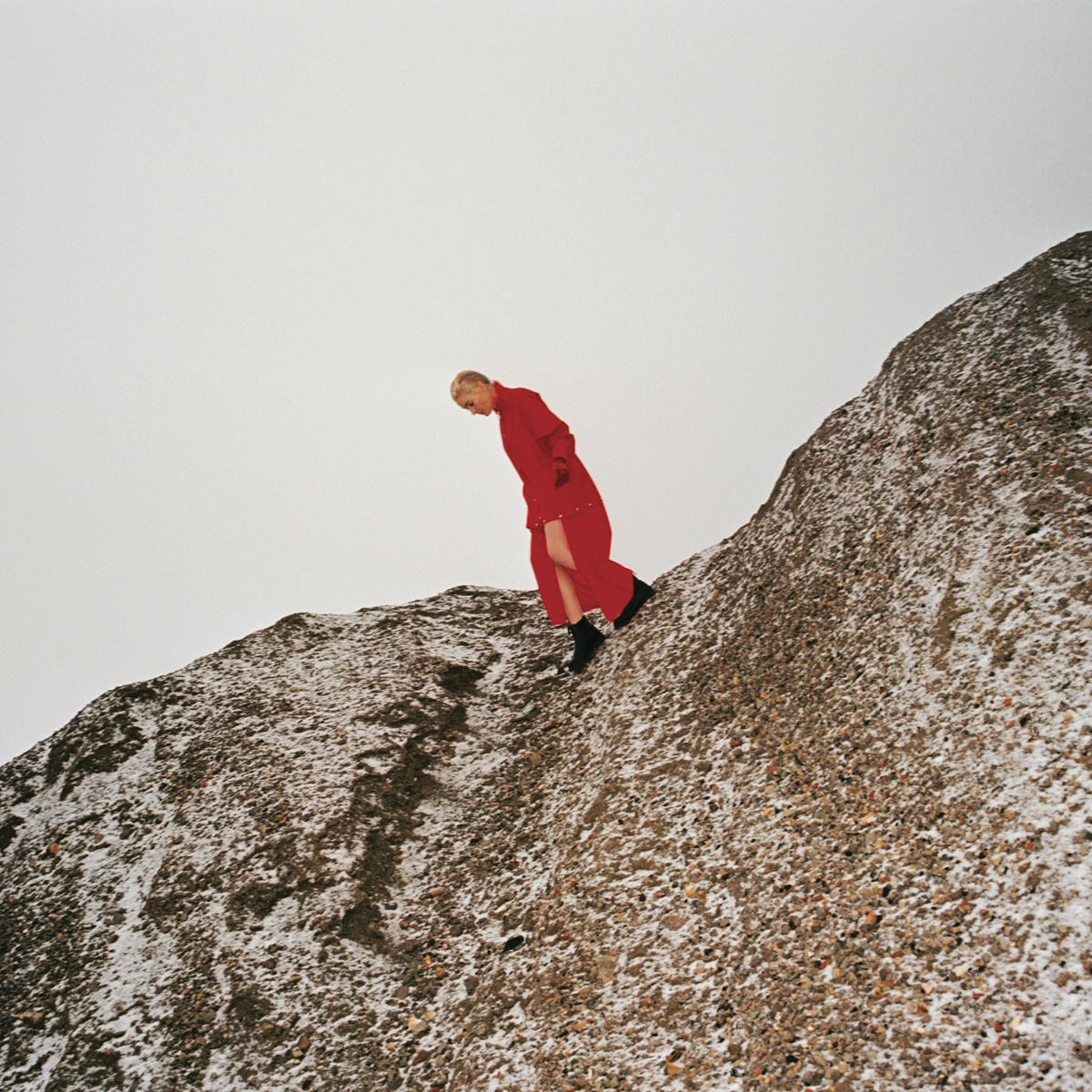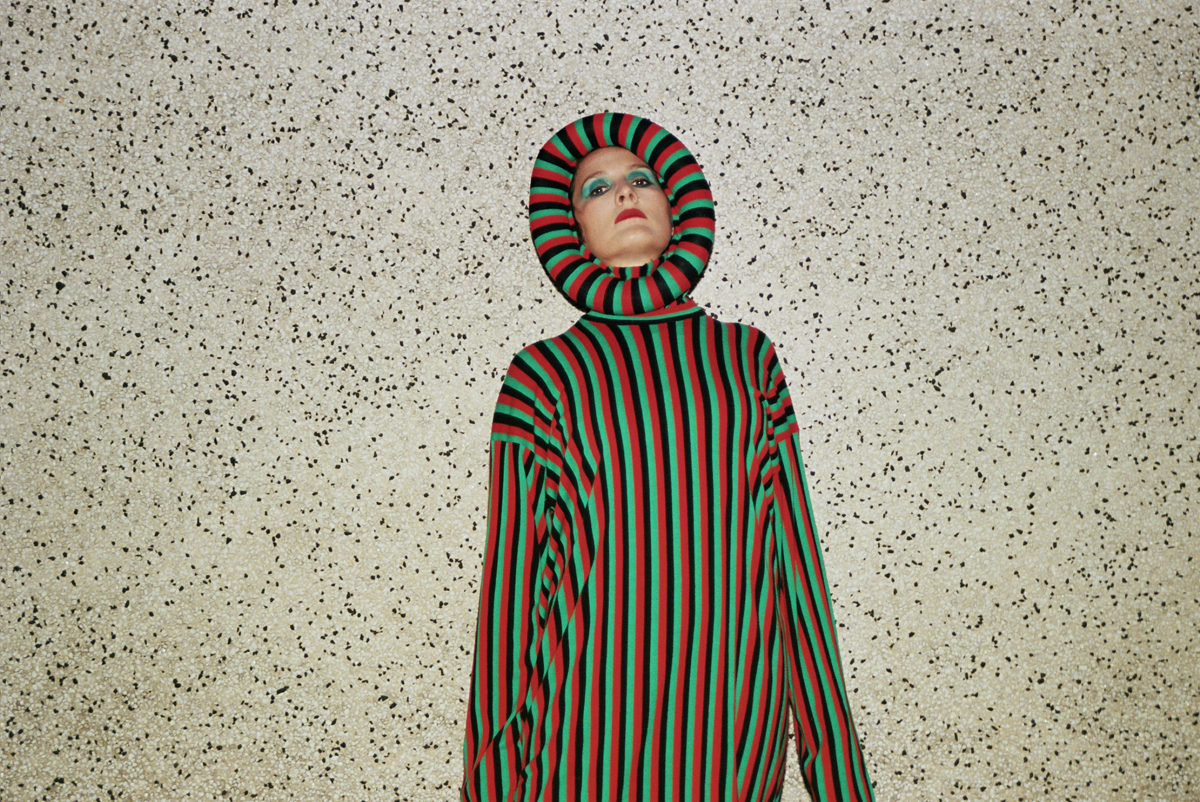 Rumaan Alam
Rumaan Alam
In the Welsh musician’s newest album, an inscrutable menace is in the air.

Cate Le Bon. Photo: H. Hawkline.
Pompeii, Cate Le Bon, Mexican Summer
• • •
It feels right that Cate Le Bon has called her sixth album Pompeii. She seems to be conjuring place, a not altogether happy one, menace in the air. The fact that Vesuvius already belongs to Siouxsie Sioux evidently does not worry Le Bon. Nor should it. Siouxsie was telling a story about a city in dust, consumed by fire and ash. Le Bon is charting a psychic geography. “Every fear, / Every fear that I have / I send it to Pompeii,” she says more than sings. “Now I’m running just to give it away.” Is that what this record is—a catalog of fears, thrust toward the listener?
Le Bon is Welsh; she lives in California now, but you can’t shake Wales out of your voice so easily. There’s some stretch to the vowels, a jumble of vaguely familiar sound: “Heavens above don’t care how you’re living,” she sings on “Harbour.” “Carry across your devotional ties / Where do you run when you’re like a child?” If I hadn’t consulted the lyrics, I’d have believed it possible she was singing in Welsh, not English. Not because the ear can’t parse the words, but because the meaning is in the liquid sound more than something literal.
Le Bon’s thirteen-year career has entailed real evolution, not just the donning of a new guise, as would be par for the course with a pop musician. In truth, that’s not really what she is. Le Bon’s 2009 debut, Me Oh My, is naïve and folksy, a strained soprano over strummed guitar. That sound (and her production) matured on 2012’s Cyrk, the best tracks—“Fold the Cloth,” a rocker worthy of Jack White, and the searching and sweet “The Man I Wanted”—filigreed with a hint of psychedelia. She’s even managed to write a truly perfect pop song, “Are You With Me Now?,” from her third record, 2013’s Mug Museum. (Not hyperbole.)

Reward album cover. Courtesy Mexican Summer.
2019’s Reward is a turning point. Le Bon deploys her voice differently. She sings slowly, declaratively, in a lower register. When she reaches for the high notes, the resulting vocals are abstract and discomfiting, sonic yips instead of girlish quavering. Pompeii is in the same vein as its predecessor—the same controlled vocal delivery and a synth-heavy sound (though there’s also piano, bass, and guitar, all handled by Le Bon). But where Reward is introspective (“And the more you feel, the more you have to lose,” Le Bon warns), Pompeii is mournful.
On this album, as on Reward, Le Bon deploys the saxophone to unlikely effect. (The horn players on Pompeii are Stephen Black and Euan Hinshelwood.) That instrument is one of the first sounds you hear on the opening track, “Dirt on the Bed,” and how odd to encounter it not as schmaltzy gag but as alien bleats, circling overhead, strange and unsettling. “Sound doesn’t go away,” Le Bon sings, “In habitual silence / It reinvents the surface / Of everything you touch.”

Cate Le Bon. Photo: H. Hawkline.
Despite a title invoking volcanic fire, the record is chilly. That’s not to say self-serious; the loping sound of “French Boys” is sexily jazz-inflected. The boys of whom Le Bon sings are “So cold / Faces like lakes / Collaged against rocky terrain.” Those boys are “So quiet / But I sense what they’re sayin’.” I don’t think Le Bon is singing about actual boys, French or otherwise. Her songwriting uses a private, inscrutable mythology. Maybe the lyrics are written as operations of chance. We know the words, but they don’t seem to mean what we expect them to.
Le Bon is so thoroughly herself that the temptation is to situate her among other weirdos. I think of her as the closest thing we have, now, to David Bowie, and the directors of the video for “Remembering Me,” one of Pompeii’s less-dark songs, would seem to agree. The camera pans down onto Le Bon against a white backdrop, eyes painted Martian green; it’s too precisely like Mick Rock’s 1973 video of Bowie singing “Life on Mars?” to be mere coincidence.

Pompeii album cover. Courtesy Mexican Summer.
It would be a provocation from a lesser artist. Le Bon’s saxophones recall Bowie’s Berlin records (I thought of “Sons of the Silent Age,” a personal favorite from 1977’s Heroes), and the attention she brings to the presentation of the self—a wimpled visage on the album’s art—feels learned from Bowie. You might even find that the video for “Running Away,” which layers projected images over the musicians’ forms, recalls the heartbreaking one made for Bowie’s late lamentation “Where Are We Now?,” by Tony Oursler. Maybe I’m getting carried away. Anyway, I could as easily cite Cocteau Twins, Björk, or Laurie Anderson; in the end, what these artists most have in common is their iconoclasm.
Perhaps it’s natural that any work of art emerging from the past two years would end up dark. Elegiac as Pompeii can be, though, it is not dire. Vesuvius might be erupting, but Le Bon will keep singing. “Remembering Me” and “Moderation” are tinged with pop sweetness, even danceable, if you insist. This has the curious effect of underscoring the album’s bleakness. The lighter tunes make you want to move your body in search of relief. In a lost world, what can you do but dance?

Cate Le Bon. Photo: Cate Le Bon.
Pompeii, like its predecessor, has a kind of logic to it—a narrative pacing that makes it a complete text rather than a collection of pieces. The album’s final song, “Wheel,” is somehow the most fitting conclusion to whatever the story being told is (you must decide that for yourself). It opens with a sweet and jaunty piano. “It’s been a mild winter here,” Le Bon sings in her confident languor, “And I’ve buckled like a wheel.”
There’s that strange saxophone again, almost avian, stalking either us or the singer. “Do I miss your loving? / When I need it,” she pushes her voice higher, but maintains control.
“I do not think that you love yourself,” Le Bon goes on. “I’d take you back to school / And teach you right / How to want a life / But, it takes more time than you’d tender / Over me.” Hang on: is this a love song?

Cate Le Bon. Photo: H. Hawkline.
I suppose it doesn’t matter. “Wheel” doesn’t end, really; it spins out, the melody lifting up with the singer’s voice, which intones the words “No prisoner, no peace.” The final notes feel like a question mark.
Rumaan Alam is the author of the novels Rich and Pretty, That Kind of Mother, and Leave the World Behind.